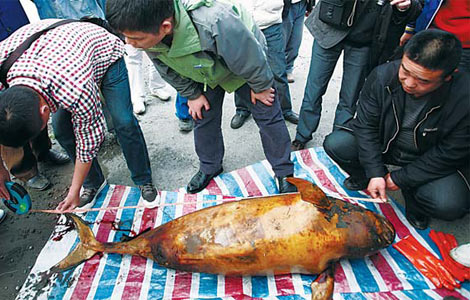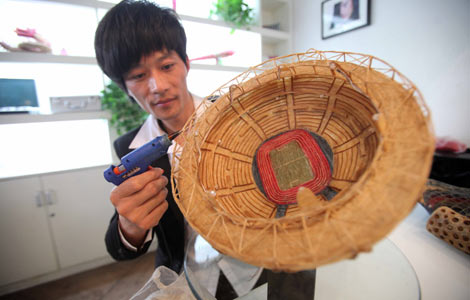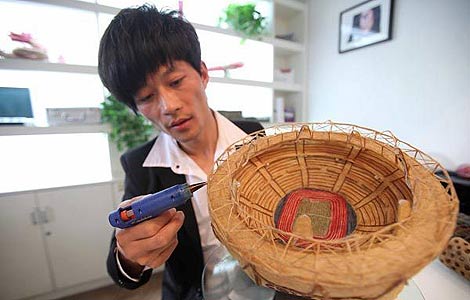 |
|
|
|
|||||||||||
A peak period in the birthrate is exerting extra pressure on the already overburdened kindergartens of China's big cities.
Over the weekend, large numbers of parents began waiting in line, early in the morning, to register for a kindergarten place in the Jing'an district of Shanghai for the autumn term.
"This is just the first step. Their registration information will be sent to the district's education department for allocation. We can't assure them that their children have registered successfully," said a teacher surnamed Fang, from Huashan Art Kindergarten, one of the registration centers.
Fang said that, due to the increasing number of applicants, her kindergarten has enlarged enrollment from two to three classes, each with 25 children. The school has also turned some offices into classrooms to meet the demand.
Statistics from the local population department show that Shanghai has seen about 170,000 to 180,000 new births each year over the past four years.
Zhou Haiwang, deputy director of population and development studies at Shanghai Academy of Social Sciences, said the lack of kindergartens was due to a combination of a baby boom in recent years and an increasing migrant population.
"The shortage of education resources has a direct relationship with the population size," Zhou said on Monday.
In big cities where economic level is relatively higher, more and more women are reluctant or refuse to bring children into the world. Thus, low birthrates have been the norm over the years, Zhou explained.
"In most recent years, the city has experienced a peak in births as people who were born in the 1980s, when there was a baby boom, now have entered their marrying and childbearing age, and this has led to difficulties getting their children into kindergartens and schools."
"The city's increasing number of migrants over the years has also resulted in a great demand for education for their children."
Yuyaolu No 2 Kindergarten, a public kindergarten in Shanghai, said it received more than 300 applicants in one day alone.
"Parents are required to list three choices of kindergartens located in their household registry district. The education department will allocate the kindergarten based on the availability of their preferences. If the enrollment of their first choice is full, then they have to consider the next choice," said a school staff member in charge of enrollment.
Fierce competition for places was also seen in other districts. In some public kindergartens, there were four applicants for each place.
Beijing, Guangzhou and other major cities have also experienced the 20-year cyclical baby boom, with a nationwide peak in births each year since 2006.
"I was born in the 1980s, when a large number of babies were born. Since that time, we have had to compete for almost everything, from kindergartens to school and universities, and even when looking for a job," said a woman surnamed Li, 29, a bank clerk in Beijing.
"My husband and I prefer the public kindergartens, due to their low charges and high reputation, but their number is limited. I'm not sure what will happen," said Zhang Yanmin, a college teacher in Shanghai and mother of a 1-year-old daughter.
Possibly foreseeing the problem, in 2006 the city began to address the high demand for preschool education.
Since then, Shanghai has established about 400 kindergartens, mostly in suburban areas with migrant populations.
"Children born in 2008 will enter the kindergartens soon. The city is planning to set up more kindergartens in the city to meet the increasing demand," said Yin Houqing, deputy director of Shanghai Education Commission.
According to the commission, about 400,000 children in the city are now in kindergartens, and the number is expected to exceed 500,000 in 2013.
The city has also encouraged more approved private kindergartens and day-care centers to open.
In Beijing, about 600 kindergartens will be constructed and renovated by 2020.
"In the long term, authorities should encourage women to give birth and solve the potential problems caused by an aging society. But they should also take farsighted measures to cope with the changing population size," Zhou said, adding that the current baby boom is expected to last until 2015.
Deng Jin contributed to this story.

|

|

|

|

|

|